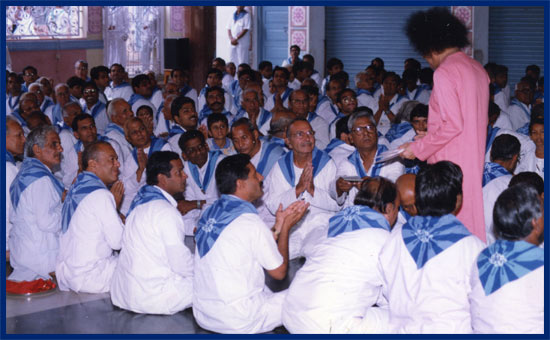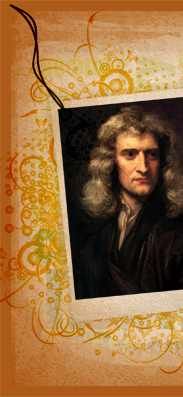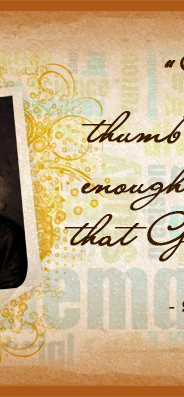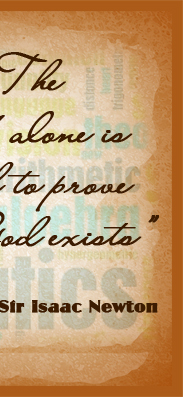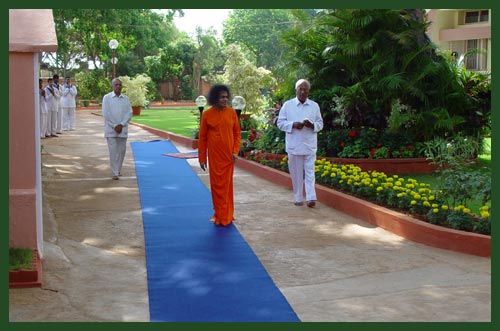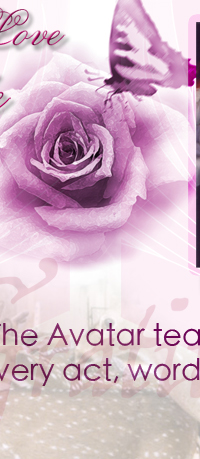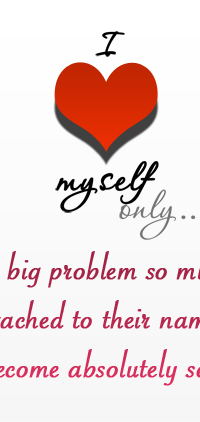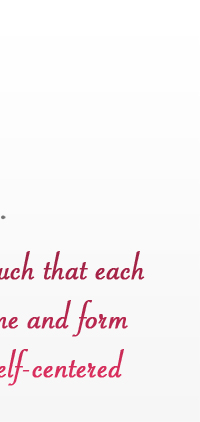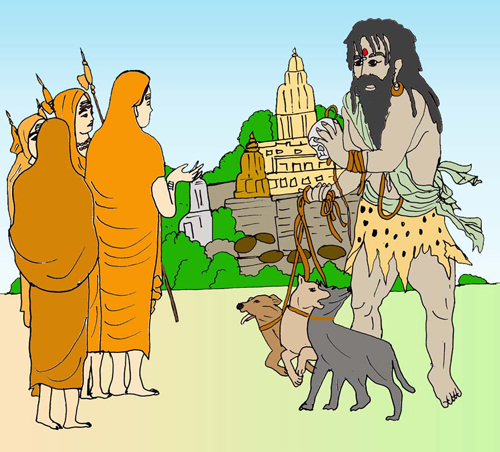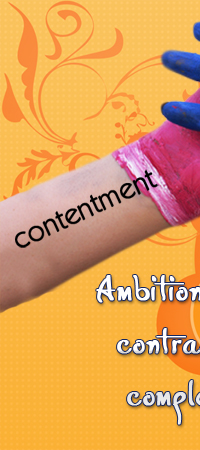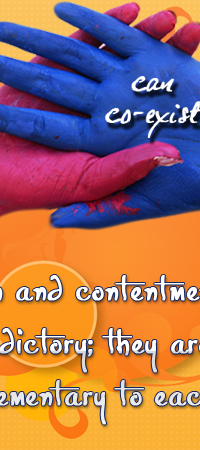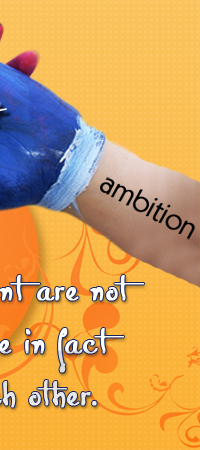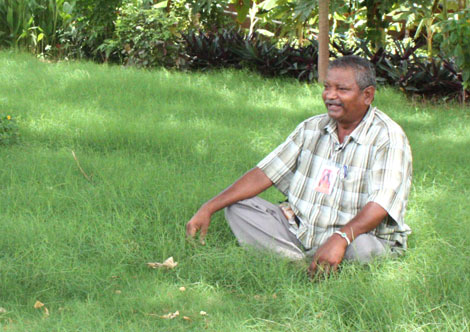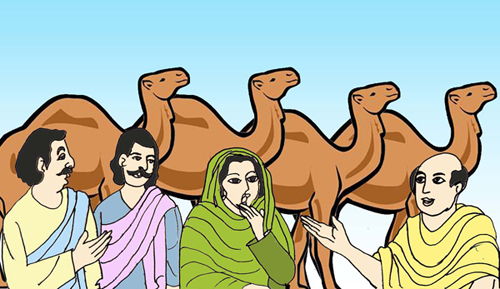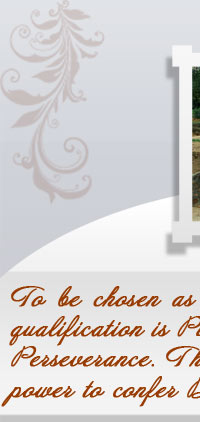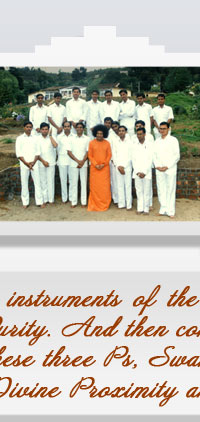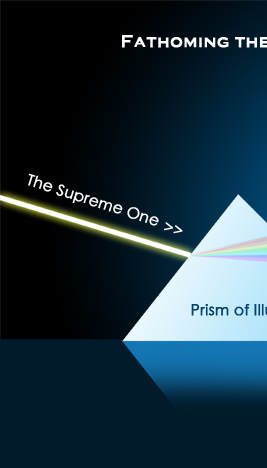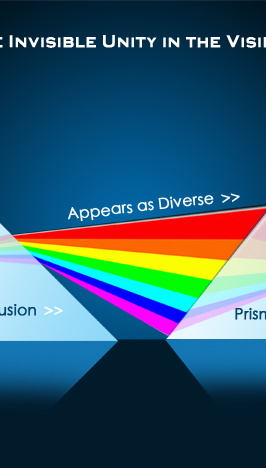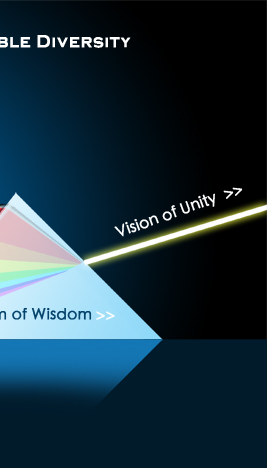|
|
RADIO SAI STUDY CIRCLE – PART 04
- Read Other Episodes of Study Circle -
Om Sayeeshwaraya Vidhmahe
Sathya Devaya Deemahi
Tannah Sarva Prachodayath
Om Shanthi Shanthi Shanthihi
AD: I am reminded of another incident that took place in 2005. I was in my second year MBA and our batch was blessed to be with Bhagawan in a private conversation at the Bhajan Hall when He gave us this definition of a manager. The crux of what He said was M stands for ‘Mind of Man’ and the letter A stands for ‘Awareness of Atma’. I wondered how Atma really figured in the definition of ‘Manager’ which is a pretty worldly kind of position.So I asked Bhagawan, “Swami, what is the meaning of this Atma? How do we understand the purport of ‘Awareness of Atma’?” And, Swami beautifully explained, “See, in the office there is a superior and a subordinate. But outside there is no boss or assistant; there is only one—that is Atma. When you are in the office premises, you can’t say, ‘All of us are one’. If you do this, it would be very difficult to discharge your duties. Therefore, everyone has to play their respective roles but at the same time be conscious of the Atma within every being and act in an appropriate manner. For instance, a father has to shout at his son when he does a mistake; he cannot say ‘We both are one’. But it cannot become personal. So, the moment we step out of our day-to-day routine, we should sit back and figure out that we are in fact one.”
GSS: In other words, at the operational level, we need to appreciate and respect these differences for the functioning of the society.
BP: The same principle is within everyone. If we realise and adapt this in our day-to-day conversations, in the way we deal with people, then our whole perspective in life will change. Allow me to share with you a very powerful incident. This happened many years ago during one of the major celebrations in Prasanthi Nilayam. I think it was Swami’s Birthday function in the earlier years when the ashram was small and the services were also not so comprehensive. There were limitations in water supply, sanitation, etc. And one day, the drainage system faced a severe crisis; there was a major block and sewage water had started overflowing from a particular drain, and the only way to stop this was to manually go down into the gutter and clear the obstruction.
While there were so many people discussing what to do and how to go about this, a sevadal from Orissa had no second thoughts, he simply dived straight in. In a few minutes, he cleared the block successfully; jumped straight out of the mud and headed for the shower. Soon he was back in duty. Now, how was this person able to do this? Not for a moment did he consider that task to be low, because he strongly believed that everything is God’s work and every work ought to be treated with the same respect. What is of course also interesting is that when Swami was later giving padanamaskar to all sevadals after the completion of their duties, He came to this person straight and declared, “This person will not have another birth.”
Anyway, what is important now for our discussion is that if we look at everything as Divine because the Divine in fact is present in everything, then our attitude when we meet people or when we do a particular task absolutely changes; it acquires a completely new dimension.
GSS: Correct! Everything becomes sacred.
KMG: What I find here is especially relevant to all Sai devotees when they are in Prasanthi Nilayam, whether they are assigned a duty in Sai Kulwant Hall or some other task, let’s say as a gardener. If I go and ask him his profession and he replies ‘gardener’ and then goes on to say that he is the gardener in front of Yajur Mandir, then the light in which I look at him almost touches the sky. There are so many drivers we have met and suppose somebody says ‘I am Swami’s driver, I sit next to Swami and drive’, the light in which we look at him again will be totally different. However, what we need to understand is that instead of restricting our vision to Prasanthi Nilayam, we should think that the entire world is Swami’s creation. After all, why should we limit Swami only to Yajur Mandir?
SG: We must look at every person and his work as doing a duty towards Bhagawan. Then every role becomes respectful. In fact, sevadals take turns to come in from every State for doing seva. During their two weeks of duty here, they get to experience the sanctified ambience that Swami permeates in this ashram. They should carry that same feeling wherever they go.GSS: And this is what dignity of labour is all about, I think.
BP: Absolutely! Apart from the spiritual aspect, even if we look at it from a practical perspective, you know every role is so important. For example, can we imagine a surgeon doing a perfect operation if the sweeper does not clean the operation theatre well or if the workers at the central sterilisation unit do not take proper care to ensure that all the instruments are completely sterile? He may be the best doctor in the world, but if some worker in the central sterilisation unit has not done his job well, the patient can be in deep trouble! We all have this common experience about how our lives become so difficult if the maidservant or milk vendor do not come on time. In fact, for some people, without the morning tea or coffee, their day just does not start.
I am reminded here of these dabbawalas of Mumbai, the way they meticulously collect freshly cooked food from every home and serve the office goers. Their work is so phenomenal that these people can really bring Mumbai to a halt if they go on strike. In that sense, each person’s role or job is so important. We can’t really demean any particular task.
In fact, with reference to the example of the fingers that we started this conversation with, I remember a fascinating quote of Sir Isaac Newton. He said, “The thumb alone is enough to prove that God exists”.
SG: Amazing! Swami with His own life as His message illustrates this that we need to respect and love everybody equally. I remember this particular incident which Sri Narasimha Murthy, Warden of the Brindavan Hostel, has often narrated about a sweeper who still works there. His name is Ramaiah and this happened during the time when Mr. Atal Bihari Vajpayee visited Swami just before taking over as the Prime Minister of India, and Swami lovingly told him that the ashram was his mother’s home and he could visit any time.
Some two weeks later, the sweeper of the hostel was waiting outside the gates of Trayee Brindavan in order to seek Swami’s blessings for his daughter’s wedding. Swami had come for darshan around 8.00 o’clock in the morning. He looked at the gardener and walked away. After darshan, Swami again walked straight into Trayee Brindavan and called a few devotees for interview. The gardener felt very bad. He went back to the Warden and said, “Sir, Swami saw me; but He did not say anything; He did not bless my daughter’s marriage.”Sri Narasimha Murthy said, “Let us wait and pray to Swami. Prayer is very dear to Swami and He will listen and yield to anyone’s prayers.” He then asked him to go and stand in a place called the Elephant Corner.
The gardener went back the next day and waited at that spot. Soon after the interviews were over, just past 9.00 in the morning, Swami came straight out. He did not get into His car as He normally would. Instead, He walked straight to Ramaiah and said, “Baadha paduthunnava? (Are you feeling sad that Swami did not speak to you when you came?)”
Swami then gave a very touching and beautiful explanation, He said, “See, today is Monday; from 7.30 am to 9.00 am is Rahu Kalam, an inauspicious period. During this period, one is not supposed to take up any auspicious work. That is why I waited for 9.00 o’clock to go by and came rushing to you so that I can bless you and your daughter for the marriage.”
Bhagawan then gave a saree and blessed the mangalasutra (sacred necklace). Imagine the Prime Minister of India on one side and the sweeper of the hostel on the other. All are treated with the same measure of absolute love by Swami.
BP: Bhagawan always does this during His Kodaikanal trips; on the last day of the Kodai stay, He makes it a point to call all the washermen and dhobis and give them expensive sarees and clothes.
KMG: One very important lesson we have to learn from Swami’s life is the attitude of gratitude. If only we were to sit back and think humbly before we retire for the day about how many people we owe for what we are today, we will realise the inter-connectivity of this inter-dependent reality. It is not just giving dignity to every role as we saw in the example of the sweeper, the driver and policemen.
Swami went one step ahead in expressing His gratitude to the doctors who operated on Him. I was there at the function held in Sai Ramesh Hall in Brindavan and could visibly see how the doctors were overwhelmed by Swami’s love and compassion; that extra human touch which goes beyond the professional exchange of money and other things is what brings out the underlying feeling of selfless love and unity.
AD: In fact, when you talk about gratitude, I am reminded of a very beautiful experience that most of us may know but would be worth recalling here. It was when Bhagawan had gone on one occasion to Horsley Hills, a hill station close to Puttaparthi, and it so happened that Bhagawan was staying in the guesthouse over there along with His party.
There was a particular buffalo which used to carry hot water for Bhagawan’s bath everyday. Towards the end of His stay when He was about to get into the car, Swami gave everybody something for their hard work. Suddenly, Swami stopped and saying “I have forgotten one person,” He got down from the car. He went straight to the buffalo that was standing there and patting it, He said, “Bangaru (Golden one), I am so happy. Thank you. I want to pay My gratitude to you for the hard work that you have done in bringing hot water to Me.” So saying, He called the owner of the buffalo and clicked a picture with both of them. The best part was that the following year when Bhagawan went to Horsley Hills, Swami remembered to give the photograph to the owner and said, “Do you remember last year when I had come, we took this picture?” That is Swami! Even a buffalo does not miss Bhagawan’s gratitude when He need not do anything actually at the cosmic level.
GSS: Amey and Ganesh, picking up from what you both mentioned, all we need to do is look at our own lives. As Ganesh said, nothing can be accomplished if the concerned people do not do their jobs well. Let’s say we go to the washbasin to brush our teeth. We turn on the tap and water comes. What would we do if the person who operates the pumps had not turned on the valves? We would get no water! You use a toothpaste. Somebody has manufactured it; similarly the brush. We have our bath, breakfast.We need to think like this. The groceries and the food that has been prepared by someone—either a cook or a family member, the grocer, the farmer and so on! If we dwell like this, we will realise that there are a number of people who make it possible for us to live our life. Even now, as we are talking here, there is somebody who is handling the recording, the lighting, the electricity supply. It is mind-boggling. From all the examples that you have shared, this is what Swami expects from us: We must love all because we never know who has really contributed to our lives for it to be smooth. Therefore, let us express our gratitude to all the people who are extremely essential to help keep us perform our respective roles and keep the chain of life well-lubricated.
Now that we have dwelt considerably on how to deal with diversity, let us move to the complex question of why we are not able to deal with diversity as successfully. Giridhar, why do you think we are not able to really see through this diversity?
SG: I once had the opportunity to ask Swami, “Swami, when there is really only one, why do we see so many? Why do we see diversity?”Giving a beautiful answer, Swami said, “Lokamantha (the world is) zero. Only one has value. But, people don’t see that one. They see only zeros and somehow give value to something which is valueless.”
Then on another occasion, He went on to say, “Ego is a very big problem. Each one is so attached to his name and form that he becomes self-centred.” Swami uses two beautiful words: Swartham (selfishness) and Swaprayojanam (what is beneficial to me). That is all that one thinks of all the time. Swami said this is the fundamental problem why we fail to see unity in diversity.
BP: Giridhar, you mentioned about ego. What comes to my mind is a very good story from the life of Adi Shankara. Once Adi Shankara was returning from the river Ganges after taking a holy dip and He was passing through a narrow lane. He then saw a chandala or an untouchable (person of a lower caste) approaching from the other direction. Shankara immediately stopped and shouted, “Move away! Get out of my way.” He said so because he felt he would be polluted by his very presence. What subsequently takes place is very interesting. The so-called chandala stopped and asked Shankara, “You want me to move away. But whom are you asking to move away? Is it my body that should clear the way? In that case, one body is asking another body to move away and both are inert. So what authority does that body have over this body to give such an order? If you are addressing my spirit, the same spirit that is there in me is in you also. It is the same Atma which cannot ask itself to move away from itself. It is there everywhere; so there is no question of moving away!”
The chandala then went on to ask, “Is the sun that is reflected in the waters of the holy river Ganga any different from the sun that is reflected in wine?” Shankara was really flabbergasted. He never expected such wisdom from a so-called untouchable. He immediately realised that it must be the Divine which has come in that form to teach him a lesson. And the lesson is obvious—you cannot have ego.
That is what God taught him.
GSS: There is no one called an ‘untouchable’ and that is why God took that form.
KMG: Shankara and the chandala story reminds me of a more contemporary story wherein one battleship was ordering another ship to change its course. It was shortly after dark and the visibility was poor with patchy fog. The captain of the ship chose to remain on the bridge keeping an eye on all the activities. Just then, a sailor reported that one more ship was heading straight in their direction. The captain commanded the signalman to advise the other ship to change its course by 20 degrees. Back came the reply that it was better for the first ship to change its course. The captain said, “I am the captain and I command you to change your course by 20 degrees.”
“I am a seaman; second class. I advise you to change your course.”
By this time, the captain lost his temper. He was furious and shouted, “I am a battleship. You better change the course by 20 degrees”. Pat came the reply, “I am a lighthouse!” Needless to say, the battleship changed its course. But there was a paradigm shift in the captain’s perception, in the way he was looking at the situation. But I would say the stronger driving point here is that most of us are enveloped in the fog of ego, the darkness of ignorance and we feel that might is right, position and power alone can command and that is right. Ego is the fundamental reason for this myopic vision which leads to a lot of pre-conceived notions. The quicker we see the oneness operating in all, the faster we move forward in our spiritual path.
GSS: Sorry again for coming up with these doubts but I have a question to ask. When you speak in this fashion that everybody is important and every role is significant, are you saying that there is no scope for ambition in this world? Here is a son of a farmer I know, who managed to study well and got into the Indian Institute of Technology and is very happy about it. So are you saying that the farmer’s role is very important and he must continue to be a farmer, there is no need to really go up? Or are you saying that the poor child must not really aspire to become a rich person and then go on to become a Minister of a State? Let us clarify that point.
AD: With my modest understanding, let me try and throw some light. What you are trying to express is fundamentally the ongoing war between ambition and contentment; does it mean that the poor person, for example, a barber’s son should never grow up or aspire to go up the ladder?
That is not what Bhagawan or the Masters say. What we should understand is that in life, let us not look down or demean any person and his position or glorify another as great. Having said that, ambition and contentment can co-exist. They do not compete with each other. They are complementary to each other. It has to be made very clear that a person, however low in rung, can aspire for greater positions. At the same time, the lower rungs do not become less important. They are as important as is every rung in the ladder of success.
GSS: Amey, what you are saying is that there is nothing wrong in upward or horizontal mobility. It is not that you have to be stuck with your segment of society you were born in. Based on your competence, you can always move forward and aspire for something big; but never look down upon anything; don’t think of something as less or more. That should not be the motivation for going higher up.
That need not be the motivation, indeed. So the Prime Minister is as important as a farmer who works in the farm. This is where I would like to bring in the aspect of inequity and inequality. There is a very significant difference between the two. Why I am saying this is to point out how diversity can misfire and lead to a lot of evils in society because of our inability to see the unity.
While inequity now pertains to unfair, avoidable differences arising from poor governance, corruption or cultural expulsions, inequality exists because of lack of resources or shortage of resources. Swami also says no one can bring about an arithmetic equality in society. You cannot have everybody earning the same amount of money or having the same size of house. Swami says that is not the blueprint for creation; but what is indeed sad is inequity, because it is suggestive of one person getting more at the cost of another. Inequity invokes moral outrage. It is unfair and indefensible and is the result of human failure. That is why today we see marginalisation of segments of society or communities, sects of disadvantaged people creating a sense of deprivation, and a sense of injustice. The outcome for such a syndrome is revolt; the reason why we have terrorism and movements such as Naxalism and Maoism in India—only because one segment of the society feels marginalised. And we fail to see that. What I am trying to say is we are not leveraging diversity the way it ought to be leveraged upon; instead, we are creating discord by failing to see the unity.
BP: If you look at the various forms of governance, each form has come into being to try to solve this problem, but they have not done it because the systems of governance—be it capitalism, socialism or communism—are only per se idealistic. That said, the problem is not with the system, but its practice. As long as the people in the system try to exploit the other, none of the systems are going to work. That is why Swami says you cannot have equality in society because you really cannot have equality of distribution of material possessions. But what you can definitely have is equality through the cultivation of love, and that comes when you promote a sense of Divinity; a sense of recognition of the Divine principle present in every being.
Mr. Kovasi Shankar Bada was earlier a Naxal leader hailing from Kadamuru village, East Godavari District of Andhra Pradesh. Thanks to Swami’s Water Project and unceasing unconditional love of Sai sevadals, many former naxalites like him
are today active Sai workers.Here, I am reminded of what happened in the East Godavari District and this is really a practical example of Swami’s words—equality through the practice of love.
Swami provided water to the East Godavari Districts. But it was again absolutely one of those unexpected announcements, and unasked, these tribals benefited from Swami’s grace. What many people do not know is that these areas are actually Naxal-infested and after Swami’s water project started, it was followed up with lot of service initiatives by the Sai Organisation. Now, this whole place has undergone such an amazing transformation. Naxalism has been totally wiped out of this place. I had the chance to interview one former Naxal leader—for fifteen years, he was in the Naxal movement holding a gun. He was in the forest and went up the ranks.
GSS: And you interviewed him?
BP: I did because now he is a Sai worker. Not only him, there are so many other people like him. Now they have seen the Sai sevadals, and their work is an expression of empathy and love. That is what has brought about this ‘equality of love’ now.
GSS: I think we have had a very elaborate discussion on diversity and the need to see unity in diversity. Now in a wrapping-up round, I will give each one of you a minute or two to tell me what is the key to solving this problem of diversity, how do we see unity in diversity. Bishu, let us start with you again.
BP: Well, one thing, if you look at the finger story, how did the fingers finally realise they are all one? It is because their heart told them, “You are not mere fingers; you are actually human values; you are Divine beings”. And only when they listened to that did unity came about. So what is most important is for each person to recognise that we are not ordinary individuals but a spark of the Divine. Secondly, we have to listen to the heart. So, what is heart here, you may ask. It is the voice of conscience, the voice of love. And we have any number of examples if we look around—individuals and organisations that have done amazing feats just by following their heart.
AD: Organisations such as Mother Teresa’s Missionary of Charity is a classic example.
There is a very famous story where the biographer of Mother Teresa asked her, “Mother! How are you able to treat the lepers and wash away their puss and wounds?… I wouldn’t do it for anything in the world, not even for a million dollars.”
Her answer was so simple: “Even I can’t do it for a million dollars; I do it for the love of Christ.” That should become the motivation for each one of us and here is where I think I should mention the bhajan that we sing so often:
Prem Eashwar Hai, Eashwar Prem Hai
The last line of this bhajan Koi bhi nam japo rey manuva Eashwar prem hai illustrates that the routes may be many, but the undercurrent of all the paths is love.
GSS: Over to you, Giridhar!
SG: I would like to share a beautiful story to illustrate this. A father on his deathbed had prepared his will. He had two sons and a daughter, and in his will, he had written that half the property should go to the first son, one fourth of the property to the second son and one fifth of his property to his daughter.
AD: Complicated as usual!
SG: As usual, the sons and daughter fought over the will after their father passed away. Then a wise man came by and he enquired what the problem was. They told him about the division and that the only property their father owned was 19 camels. Their problem was how to divide the camels in the proportion mentioned in the will.
The wise man then said he would solve the problem by adding his one camel to the already existing 19, making it 20. So half of 20, that is, 10 camels were given to the first son; one fourth of 20, that is, 5 camels were given to the second son; and one fifth of the 20, that is, 4 camels were given to the daughter. So, 10+5+4 = 19 and he took back his camel.
The interesting part is when I narrated this story in Chennai, Swami gave a different meaning to this. When one of the elders pointed out that it was a wonderful story, Swami asked what did he really understand from it. The elderly gentleman said, “Swami, it was all chaos when there were only 19 camels, by adding that one camel it was very easy to divide.” Swami said, “No, no! That is not the lesson to be learnt. That one camel is God. The moment you add that one camel in your chaotic life, life gains meaning.” How beautiful! Otherwise, 19/2 never made sense. But by adding one camel to the 19 and making it 20, the entire issue gained a new meaning.
GSS: That is the key—recognising the Divine. And the key to seeing unity in diversity is to make God the centre of our life. As the meaning of the bhajan you earlier mentioned says God is in every breath, in every heartbeat of ours. Let us just recognise that and make Him a part of each and every thing that we do in our day-to-day lives.
GSS: Ganesh, you have the last word!
KMG: It comes out very clearly from all the discussions we have had that the key to perceive unity in diversity is to have a proper understanding of God’s design, that is, seeing things in the right perspective. I have one more very beautiful analogy for this.
We all know that at times Swami talks to us directly or even internally. He gives us lot of personal attention of the kind that even our own mothers may not be able to give. And then, He suddenly withdraws, behaving like a complete stranger; Swami is very good at doing this. I am sure all of us have gone through that period of ‘refrigeration’ and it is very, very painful. The same applies to Swami’s dreams that may stop abruptly or the type of internal connection with Swami that one may be enjoying which suddenly stops. There is a very significant lesson here. Bhagawan is like a cosmic surgeon performing His operation at a global level. When the surgeon goes to perform his operation, he uses his tools like knife, forceps, tweezers, and needles of different sizes as per His requirement.
When he lifts the knife with the intention of dissecting the chest for the heart surgery or when he picks up the forceps to pluck out a foreign material from the body or when he picks up a needle to stitch the operated region, imagine if the knife cries out that he alone should be held by the surgeon or if the forceps pray to be used in place of the needle or knife just for the joy of being held by the surgeon all the time, can the surgeon perform the surgery?
Similarly, in this game of life, God has gifted us with our own unique qualities to play a certain role. We must be extremely grateful to Swami if He has chosen us to be His instrument and if He withdraws, we must focus on doing our homework, which is purifying our thoughts and heart because only a pure and sterilised instrument is fit to be used in the surgeon’s operating table. The message is very clear.
We have to do our sadhana and wait for our turn to be used by the Divine hands. And the most important thing is that just like the knife, needle and forceps, which are all equally important on a surgeon’s table, you or I alone are not important. What is important is the success of the operation—the success of this cosmic operation for which Bhagawan has come is most important. Hence, only when we make Bhagawan the centre of our life, when every work is seen as Swami’s work will we perceive unity in diversity.
GSS: Brothers, thank you so much. I think we have dealt with this topic in great length. We first started with why diversity was necessary and how diversity really came about; then we emphasised on the need to deal with diversity to avoid problems. We then moved on to the subject of how we perceive unity in diversity. Finally, we concluded with what is the key to be able to really leverage this diversity for the collective good.
Just to sum up, the thought that comes in my mind is when the Divine Source or the Divine Light projects itself in creation, it is like the light moving through the prism. This prism of maya or illusion refracts it into so many different diverse colours. But we know very well that if we keep another prism in front of it, these colours again merge into one light. So let us pray to Bhagawan that having first been refracted through this prism of maya or illusion, let us place the prism of wisdom of Divine grace so that all this diversity we see converge again into unity.
Let us pray sincerely to Bhagawan that let the whole world, let all the people everywhere be able to perceive this underlying unity, seeing Swami in everything so that we can live in harmony and in perfect co-ordination, appreciating each one’s role at His Lotus Feet. With this, let us conclude with a prayer for world peace.Samastha Lokaha Sukhino Bhavantu
Om Shanthi, Shanthi Shanthihi
- Read Other Episodes of Study Circle -
Dear readers, this is an edited transcript of the third episode of our radio series Radio Sai Study Circle. While we definitely enjoyed offering this to you, we would like to know what you feel about this programme. So please do send in your feedback generously to h2h@radiosai.org mentioning your name and country. Every line you write will help us to know what you would like and give us clues to come up with more such ideas and offerings. We hope and pray to Swami that we can serve you better.



